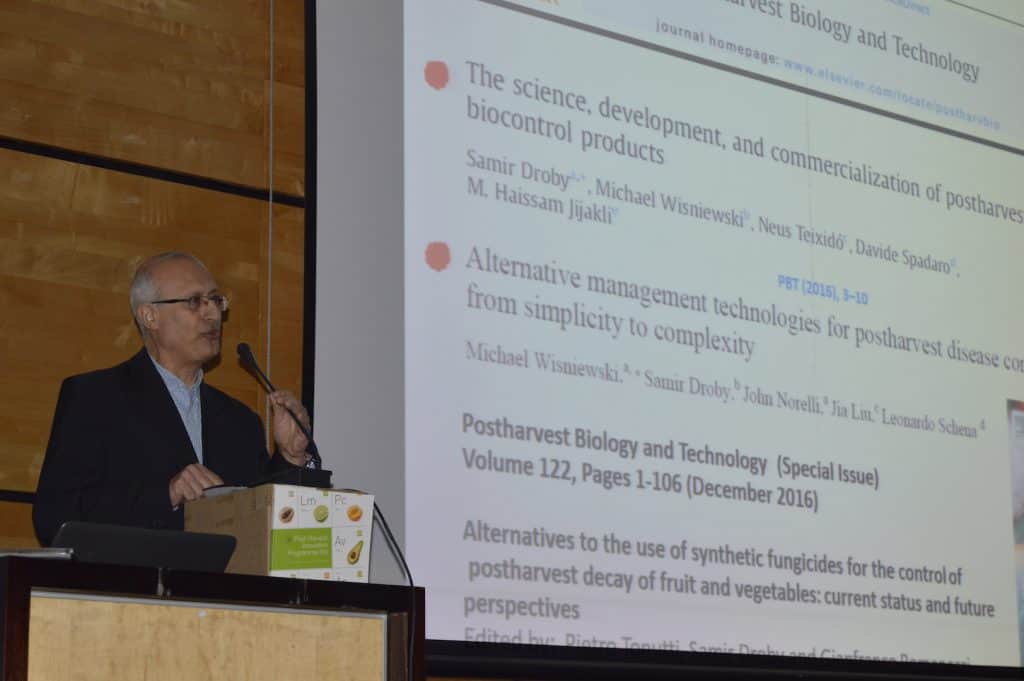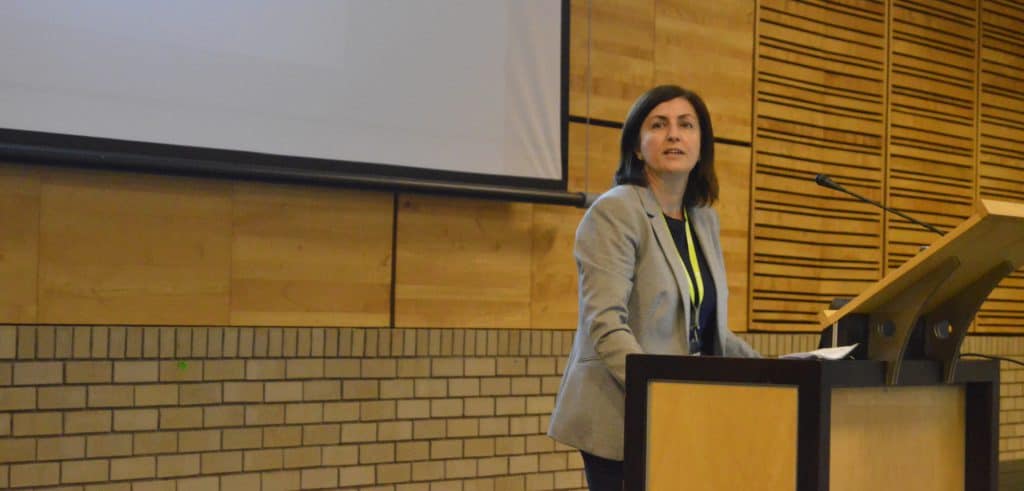
Professor Samir Droby from the Agricultural Research Organisation (ARO), Volcani Centre, Israel
Discussions underway at the Fourth International Symposium on Postharvest Pathologysaw several presenters call for new approaches to address postharvest losses, and at the same time, argue against looking for ‘quick fixes’ to remedy food decay caused by postharvest pathogens.
Professor Dov Prusky from the Agricultural Research Organisation (ARO), Volcani Centre, Israel, and called for new approaches to address pathological and biological changes in fruit to combat diseases and reduce waste.
Speaking on challenges facing postharvest disease management, Professor Samir Droby, also from the ARO highlighted the need to develop “novel approaches to control postharvest diseases based on effective and safe alternatives to chemical fungicides.” He cautioned that adopting a ‘silver bullet approach’ to control pathogens has not produced products that have lived up to potential.
No quick fix for food waste management
Presenters also noted the importance of creating a balance between finding decay control strategies to combat food waste and maintaining the nutritious quality of food. Dr Ida Wilson of ExperiCo Agri Research Solutionsemphasised the importance of ensuring that “money is invested in pathogen control strategies that are effective, sustainable and importantly, finding solutions that don’t harm the environment.”
Continuing the thread of exploring new approaches for diseases control, Professor Rosario Torres of the XaRTA-Postharvest, Edifici Fruitcentre in Catalona Spain, looked at the response of apples and citrus fruit to Penicillium ssp. – a type of fungi or mold affecting fruit and/or organic biodegradable substances. “Apples and oranges are some of the most valuable fruit crops worldwide. However, postharvest diseases caused mainly by fungi belonging to Penicillium spp. affect the postharvest quality of the fruit quality during storage,” explained Professor Torres.

Professor Rosario Torres of the XaRTA-Postharvest, Edifici Fruitcentre in Catalona, Spain
Along with causing decay of fruits, the waste causes important economic losses during postharvest handling. Therefore Professor Torres seeks to develop new and environmentally friendly control alternatives, by exploring the factors that control the interaction between each fruit and each pathogen. This research could help provide a better understanding of fungal diseases in apples and oranges using pathology, biochemical and molecular approaches to improve disease control strategies in fruit.
This symposium is an initiative of the International Society for Horticultural Sciences and the International Society for Plant Pathology. The event is co-hosted by the DST-NRF Centre of Excellence in Food Security (CoE).
For more information, visit the Postharvest Pathology website.
related Articles
Dr Degracious Kgoale’s mission to improve food safety in informal markets
Dr Degracious Kgoale is the first in her family to hold a doctorate. Photo EYEscape/CoE-FS. Degracious Moloko Kgoale, who recently…
Three CoE-FS nominations for this year’s ‘Science Oscars of South Africa’
Some of the CoE-FS’s staff, researchers and Steering Committee. Photo Ross Jansen/CoE-FS. The DSTI-NRF Centre of Excellence in Food Security…



